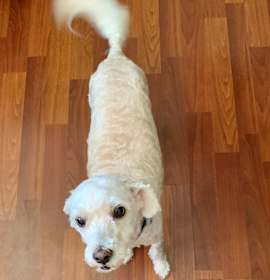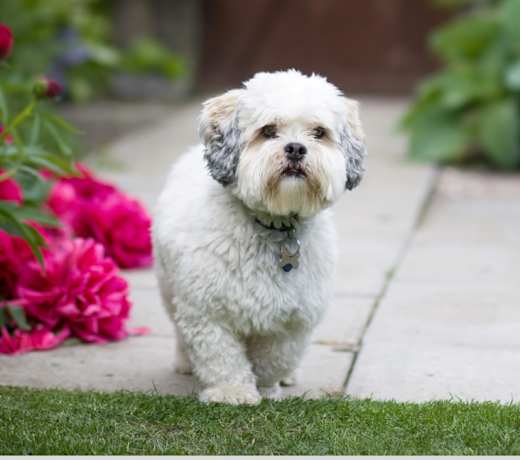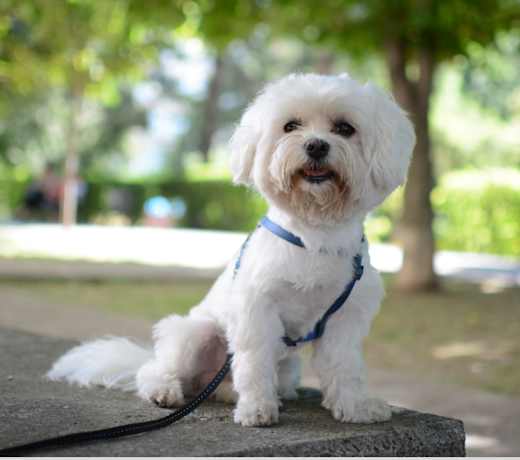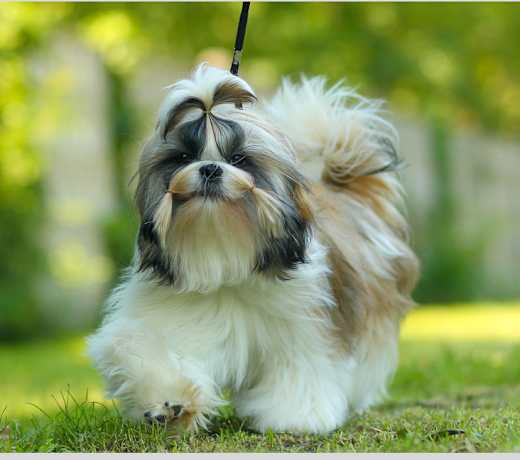The cost to adopt a Bichon Frise from a rescue organization or animal shelter typically ranges from $50 to $500. On average, you can expect to pay anywhere from $600 to $3,500 or more for a Bichon Frise puppy from a reputable breeder, though the cost of a Bichon Frise can vary widely based on several factors such as the dog’s pedigree, age, health, breeder reputation, location, and demand.
Adopt A Bichon Frise
3 available Bichon Frises near you
Sort by:
Any
Any
Any

JENNY-Help Needed
Bichon Frise Poodle (Miniature)
Female, 9 yrs 1 mo
Los Angeles, CA
Color
White
Size
(when grown) Small 25 lbs (11 kg) or less
Details
Good with dogs
Needs special attention
House-trained
Spayed or Neutered
Shots are up-to-date
Needs special attention
House-trained
Spayed or Neutered
Shots are up-to-date
Story

VINNIE
Bichon Frise
Male, 6 yrs 6 mos
WestLake Village, CA
Color
White
Size
(when grown) Small 25 lbs (11 kg) or less
Details
Good with kids
Good with dogs
Spayed or Neutered
Shots are up-to-date
Good with dogs
Spayed or Neutered
Shots are up-to-date
Story

VINNIE
Bichon Frise
Male, 7 yrs
WestLake Village, CA
Color
White
Size
(when grown) Small 25 lbs (11 kg) or less
Details
Good with kids
Good with dogs
Spayed or Neutered
Shots are up-to-date
Good with dogs
Spayed or Neutered
Shots are up-to-date
Story
1 - 3 of 3 pets available
Search for Bichon Frise puppies and dogs
Find adoptable Bichon Frise by Beverly Hills, CA
Bichon Frise puppies near meBichon Frise in Agoura Hills, CABichon Frise in Alhambra, CABichon Frise in Anaheim, CABichon Frise in Arcadia, CABichon Frise in Artesia, CABichon Frise in Azusa, CABichon Frise in Baldwin Park, CABichon Frise in Bell, CABichon Frise in Bellflower, CABichon Frise in Bell Gardens, CABichon Frise in Brea, CABichon Frise in Buena Park, CABichon Frise in Burbank, CABichon Frise in Calabasas, CABichon Frise in Camarillo, CABichon Frise in Carson, CABichon Frise in Cerritos, CABichon Frise in Commerce, CABichon Frise in Compton, CABichon Frise in Covina, CABichon Frise in Cudahy, CABichon Frise in Culver City, CABichon Frise in Cypress, CABichon Frise in Diamond Bar, CABichon Frise in Downey, CABichon Frise in Duarte, CABichon Frise in El Monte, CABichon Frise in El Segundo, CABichon Frise in Fullerton, CABichon Frise in Gardena, CABichon Frise in Garden Grove, CABichon Frise in Glendale, CABichon Frise in Glendora, CABichon Frise in Hawaiian Gardens, CABichon Frise in Hawthorne, CABichon Frise in Hermosa Beach, CABichon Frise in Huntington Beach, CABichon Frise in Huntington Park, CABichon Frise in Inglewood, CABichon Frise in La Canada Flintridge, CABichon Frise in La Habra, CABichon Frise in La Habra Heights, CABichon Frise in Lakewood, CABichon Frise in La Mirada, CABichon Frise in La Palma, CABichon Frise in La Puente, CABichon Frise in Lawndale, CABichon Frise in Lomita, CABichon Frise in Long Beach, CABichon Frise in Los Alamitos, CABichon Frise in Los Angeles, CABichon Frise in Lynwood, CABichon Frise in Malibu, CABichon Frise in Manhattan Beach, CABichon Frise in Maywood, CABichon Frise in Monrovia, CABichon Frise in Montebello, CABichon Frise in Monterey Park, CABichon Frise in Moorpark, CABichon Frise in Norwalk, CABichon Frise in Palos Verdes Estates, CABichon Frise in Paramount, CABichon Frise in Pasadena, CABichon Frise in Pico Rivera, CABichon Frise in Pomona, CABichon Frise in Rancho Palos Verdes, CABichon Frise in Redondo Beach, CABichon Frise in Rolling Hills Estates, CABichon Frise in Rosemead, CABichon Frise in San Dimas, CABichon Frise in San Fernando, CABichon Frise in San Gabriel, CABichon Frise in San Marino, CABichon Frise in Santa Clarita, CABichon Frise in Santa Fe Springs, CABichon Frise in Santa Monica, CABichon Frise in Seal Beach, CABichon Frise in Sierra Madre, CABichon Frise in Signal Hill, CABichon Frise in Simi Valley, CABichon Frise in South El Monte, CABichon Frise in South Gate, CABichon Frise in South Pasadena, CABichon Frise in Stanton, CABichon Frise in Temple City, CABichon Frise in Thousand Oaks, CABichon Frise in Torrance, CABichon Frise in Walnut, CABichon Frise in West Covina, CABichon Frise in West Hollywood, CABichon Frise in Westlake Village, CABichon Frise in Westminster, CABichon Frise in Whittier, CA
Animal shelters near Beverly Hills, CA
Dog shelters near meDog shelters in Agoura HillsDog shelters in AlhambraDog shelters in AnaheimDog shelters in ArcadiaDog shelters in ArtesiaDog shelters in AzusaDog shelters in Baldwin ParkDog shelters in BellDog shelters in BellflowerDog shelters in Bell GardensDog shelters in BreaDog shelters in Buena ParkDog shelters in BurbankDog shelters in CalabasasDog shelters in CamarilloDog shelters in CarsonDog shelters in CerritosDog shelters in CommerceDog shelters in ComptonDog shelters in CovinaDog shelters in CudahyDog shelters in Culver CityDog shelters in CypressDog shelters in Diamond BarDog shelters in DowneyDog shelters in DuarteDog shelters in El MonteDog shelters in El SegundoDog shelters in FullertonDog shelters in GardenaDog shelters in Garden GroveDog shelters in GlendaleDog shelters in GlendoraDog shelters in Hawaiian GardensDog shelters in HawthorneDog shelters in Hermosa BeachDog shelters in Huntington BeachDog shelters in Huntington ParkDog shelters in InglewoodDog shelters in La Canada FlintridgeDog shelters in La HabraDog shelters in La Habra HeightsDog shelters in LakewoodDog shelters in La MiradaDog shelters in La PalmaDog shelters in La PuenteDog shelters in LawndaleDog shelters in LomitaDog shelters in Long BeachDog shelters in Los AlamitosDog shelters in Los AngelesDog shelters in LynwoodDog shelters in MalibuDog shelters in Manhattan BeachDog shelters in MaywoodDog shelters in MonroviaDog shelters in MontebelloDog shelters in Monterey ParkDog shelters in MoorparkDog shelters in NorwalkDog shelters in Palos Verdes EstatesDog shelters in ParamountDog shelters in PasadenaDog shelters in Pico RiveraDog shelters in PomonaDog shelters in Rancho Palos VerdesDog shelters in Redondo BeachDog shelters in Rolling Hills EstatesDog shelters in RosemeadDog shelters in San DimasDog shelters in San FernandoDog shelters in San GabrielDog shelters in San MarinoDog shelters in Santa ClaritaDog shelters in Santa Fe SpringsDog shelters in Santa MonicaDog shelters in Seal BeachDog shelters in Sierra MadreDog shelters in Signal HillDog shelters in Simi ValleyDog shelters in South El MonteDog shelters in South GateDog shelters in South PasadenaDog shelters in StantonDog shelters in Temple CityDog shelters in Thousand OaksDog shelters in TorranceDog shelters in WalnutDog shelters in West CovinaDog shelters in West HollywoodDog shelters in Westlake VillageDog shelters in WestminsterDog shelters in Whittier
Adopting a Bichon Frise
Frequently asked questions about acquiring an Bichon Frise - the pros and cons of adopting versus going through a breeder, and associated costs.
The easiest way to adopt a Bichon Frise is through a breed-specific rescue organization that specializes in Bichon Frises. A great place to start is creating a breed search on Adopt a Pet. The search will show you all the available Bichon Frises in your area.



